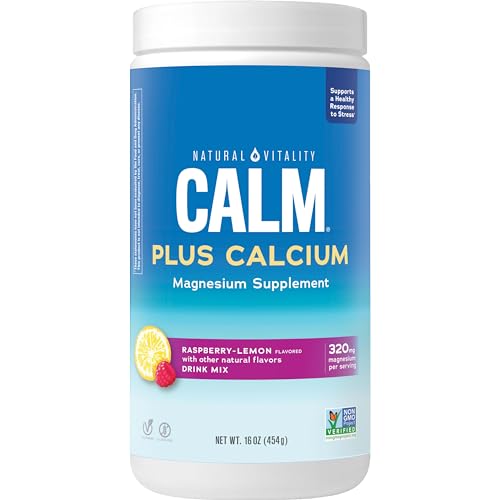
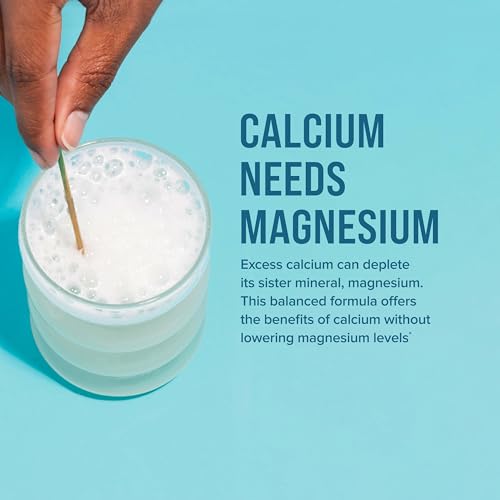
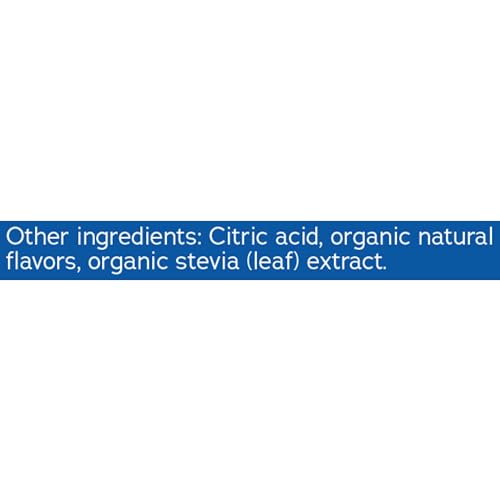
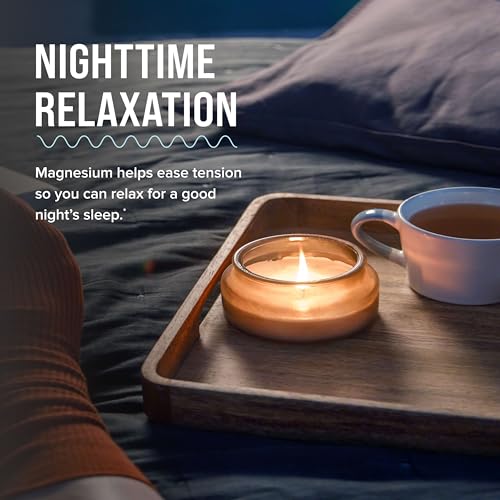

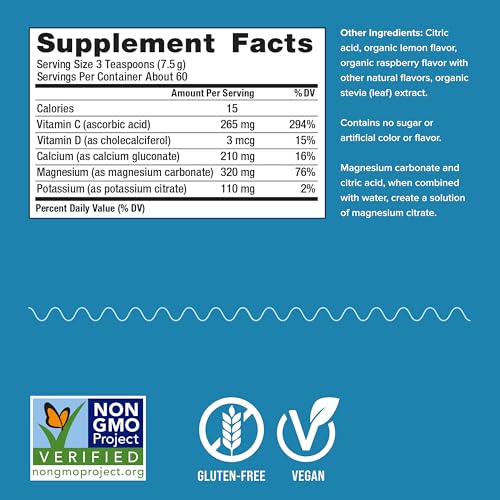


Natural Vitality Calm Magnesium & Calcium Drink Mix - Supports Relaxation, Raspberry Lemon - 16oz


Vitamin D3
High RiskVitamin D3, also known as cholecalciferol, is a fat-soluble vitamin important for calcium metabolism and bone health. It is synthesized in the skin upon exposure to sunlight and is also found in some foods and supplements. Its primary function is to promote the absorption of calcium and phosphorus in the body.
Sustai Insights
Vitamin D3 offers functional benefits such as supporting bone health and immune function. However, excessive intake can lead to toxicity, presenting risks like hypercalcemia. Environmental concerns include its potential for bioaccumulation. Regulatory bodies impose usage restrictions due to these risks, resulting in a high overall risk assessment. Safe usage practices should be observed, and alternatives such as vitamin D2 may be considered.
Citric Acid
Medium RiskCitric acid is an alpha hydroxy acid used in personal care products primarily for its role as a pH adjuster and natural preservative. It occurs naturally in citrus fruits and is commonly utilized in various formulations for its chelating properties and mild exfoliation benefits.
Sustai Insights
Citric acid offers functional benefits as an effective preservative and pH stabilizer, contributing to product longevity and stability. It is biodegradable and derived from renewable sources. Health risks are low, with minimal concerns regarding carcinogenicity, allergies, and reproductive toxicity. However, moderate use restrictions exist due to potential irritation at high concentrations. Environmental risks are limited, as citric acid is not known to accumulate in ecosystems. Regulatory agencies have no significant advisories against its use. Overall, it is assessed as a medium-risk ingredient, with safe usage practices recommended and alternatives available.
Citrus Limon (Lemon)
Low RiskCitrus limon, commonly known as lemon, is a citrus fruit used primarily for its juice and zest. It is often included in personal care products for its astringent properties and as a natural fragrance. It is recognized for its potential antioxidant benefits and as a source of vitamin C.
Sustai Insights
Citrus limon offers functional benefits like acting as a natural preservative and providing fragrance in formulations. It is sustainably sourced and biodegradable. Health risks are considered low for carcinogenicity, allergies, and reproductive toxicity. Environmental risks are minimal, with no significant bioaccumulation. Regulatory status is favorable, with no current restrictions noted. Overall, this ingredient poses a low risk, making it a safe choice for consumers.
Potassium Citrate
Low RiskPotassium citrate is a potassium salt of citric acid, commonly used in food, beverages, and cosmetic products as a buffering agent and preservative. It helps maintain pH levels and enhances flavor stability, while also serving as a source of potassium in dietary applications.
Sustai Insights
Potassium citrate offers functional benefits as a buffering agent and preservative, with low potential for health risks such as carcinogenicity, allergies, or reproductive toxicity. Environmentally, it presents minimal risks, being non-bioaccumulative and not contributing significantly to pollution. Regulatory bodies have not imposed major restrictions on its use. Overall, the risk level associated with potassium citrate is low, and it is generally regarded as safe when used appropriately. Alternatives may include other potassium-based salts, though potassium citrate remains a well-regarded option.
Potassium
Low RiskPotassium is a naturally occurring mineral essential for various biological functions, including maintaining fluid balance, muscle contractions, and nerve signaling. It is commonly used in food and cosmetic products as a salt substitute and to enhance product stability.
Sustai Insights
Potassium has functional benefits such as supporting hydration and overall cellular function. It is generally recognized as safe, with low concerns regarding carcinogenicity, allergies, and reproductive toxicity. Environmental risks are minimal, as it does not significantly contribute to pollution. Regulatory bodies have not imposed restrictions on its use. Overall, potassium is assessed as low risk, with safe usage practices recommended for optimal benefits.
Rubus Idaeus (Raspberry) Fruit
Low RiskRubus idaeus (raspberry) fruit is the edible fruit of the raspberry plant, known for its distinctive flavor and nutritional properties. It is commonly used in food products, cosmetics, and dietary supplements due to its antioxidant content and potential health benefits.
Sustai Insights
Rubus idaeus offers functional benefits, including antioxidant properties and potential skin-soothing effects in cosmetic formulations. It is generally recognized as safe, with low concerns for cancer, allergies, or reproductive toxicity. Environmentally, it is not associated with significant pollution or bioaccumulation risks. Regulatory bodies do not impose restrictions on its use, marking it as low risk overall. Safe usage includes incorporating it within recommended concentrations, and alternatives may include other berry extracts if desired.
Calcium Gluconate
Low RiskCalcium gluconate is a calcium salt of gluconic acid, commonly used as a mineral supplement in food and pharmaceuticals. It serves as a source of calcium in dietary formulations and is often included in products to support bone health and metabolic functions.
Sustai Insights
Calcium gluconate is effective for calcium supplementation, contributing to bone health and metabolic processes. It is generally recognized as safe with low risks for carcinogenicity, allergies, or reproductive toxicity. Regulatory statuses indicate no significant concerns, and it is not known to be a pollutant or bioaccumulative. Recommended usage levels are considered safe. Overall, the risk level for calcium gluconate is low, making it a suitable ingredient in various applications.
Ascorbic Acid (Vitamin C)
Low RiskAscorbic acid (Vitamin C) is a naturally occurring antioxidant essential for various biological functions, including collagen synthesis and immune response. It is commonly used in cosmetic and food products for its preservative properties and ability to enhance skin brightness.
Sustai Insights
Ascorbic acid provides functional benefits as an effective antioxidant and preservative, contributing to skin health and product stability. It is generally recognized as safe with low health risks, including minimal concerns for carcinogenicity and allergies. Environmentally, it poses low risks, as it is biodegradable and does not bioaccumulate. Regulatory bodies like the FDA have not imposed significant restrictions on its use. Overall, the ingredient presents a low risk, with safe usage practices ensuring consumer safety, and alternatives such as natural extracts exist for those seeking different formulations.
Magnesium
Low RiskMagnesium is a mineral commonly found in various products, serving primarily as a nutrient that supports multiple biological functions, including muscle and nerve function, and energy production. It is often included in dietary supplements and fortified foods to address magnesium deficiency.
Sustai Insights
Magnesium offers functional benefits such as aiding in muscle relaxation and energy production, making it an important nutrient. It is sustainably sourced and generally considered low risk, with minimal health concerns related to cancer, allergies, or reproductive toxicity. Environmental risks are also low, as it does not contribute significantly to pollution or bioaccumulation. Regulatory status is favorable, with no current restrictions. Safe usage practices involve adhering to recommended dietary allowances. Overall, magnesium is a low-risk ingredient with no significant adverse effects, making it a suitable choice in various applications.
Boron Citrate
Low RiskBoron citrate is a compound formed from boron, a trace mineral, and citric acid, primarily used as a dietary supplement. It is known for its role in supporting bone health and hormone regulation, often included in formulations aimed at improving mineral absorption.
Sustai Insights
Boron citrate serves functional benefits such as enhancing bone health and aiding hormone balance, with a low risk of adverse health effects like carcinogenicity, allergies, or reproductive toxicity. Environmental risks are minimal, and it is not currently restricted by regulatory bodies. Safe usage is recommended, and alternatives may include other boron compounds or natural sources. Overall, the risk level associated with boron citrate is low.
Citric Acid
Medium RiskCitric acid is an alpha hydroxy acid used in personal care products primarily for its role as a pH adjuster and natural preservative. It occurs naturally in citrus fruits and is commonly utilized in various formulations for its chelating properties and mild exfoliation benefits.
Sustai Insights
Citric acid offers functional benefits as an effective preservative and pH stabilizer, contributing to product longevity and stability. It is biodegradable and derived from renewable sources. Health risks are low, with minimal concerns regarding carcinogenicity, allergies, and reproductive toxicity. However, moderate use restrictions exist due to potential irritation at high concentrations. Environmental risks are limited, as citric acid is not known to accumulate in ecosystems. Regulatory agencies have no significant advisories against its use. Overall, it is assessed as a medium-risk ingredient, with safe usage practices recommended and alternatives available.
Citrus Limon (Lemon)
Low RiskCitrus limon, commonly known as lemon, is a citrus fruit used primarily for its juice and zest. It is often included in personal care products for its astringent properties and as a natural fragrance. It is recognized for its potential antioxidant benefits and as a source of vitamin C.
Sustai Insights
Citrus limon offers functional benefits like acting as a natural preservative and providing fragrance in formulations. It is sustainably sourced and biodegradable. Health risks are considered low for carcinogenicity, allergies, and reproductive toxicity. Environmental risks are minimal, with no significant bioaccumulation. Regulatory status is favorable, with no current restrictions noted. Overall, this ingredient poses a low risk, making it a safe choice for consumers.
Potassium Citrate
Low RiskPotassium citrate is a potassium salt of citric acid, commonly used in food, beverages, and cosmetic products as a buffering agent and preservative. It helps maintain pH levels and enhances flavor stability, while also serving as a source of potassium in dietary applications.
Sustai Insights
Potassium citrate offers functional benefits as a buffering agent and preservative, with low potential for health risks such as carcinogenicity, allergies, or reproductive toxicity. Environmentally, it presents minimal risks, being non-bioaccumulative and not contributing significantly to pollution. Regulatory bodies have not imposed major restrictions on its use. Overall, the risk level associated with potassium citrate is low, and it is generally regarded as safe when used appropriately. Alternatives may include other potassium-based salts, though potassium citrate remains a well-regarded option.
Potassium
Low RiskPotassium is a naturally occurring mineral essential for various biological functions, including maintaining fluid balance, muscle contractions, and nerve signaling. It is commonly used in food and cosmetic products as a salt substitute and to enhance product stability.
Sustai Insights
Potassium has functional benefits such as supporting hydration and overall cellular function. It is generally recognized as safe, with low concerns regarding carcinogenicity, allergies, and reproductive toxicity. Environmental risks are minimal, as it does not significantly contribute to pollution. Regulatory bodies have not imposed restrictions on its use. Overall, potassium is assessed as low risk, with safe usage practices recommended for optimal benefits.
Rubus Idaeus (Raspberry) Fruit
Low RiskRubus idaeus (raspberry) fruit is the edible fruit of the raspberry plant, known for its distinctive flavor and nutritional properties. It is commonly used in food products, cosmetics, and dietary supplements due to its antioxidant content and potential health benefits.
Sustai Insights
Rubus idaeus offers functional benefits, including antioxidant properties and potential skin-soothing effects in cosmetic formulations. It is generally recognized as safe, with low concerns for cancer, allergies, or reproductive toxicity. Environmentally, it is not associated with significant pollution or bioaccumulation risks. Regulatory bodies do not impose restrictions on its use, marking it as low risk overall. Safe usage includes incorporating it within recommended concentrations, and alternatives may include other berry extracts if desired.
Calcium Gluconate
Low RiskCalcium gluconate is a calcium salt of gluconic acid, commonly used as a mineral supplement in food and pharmaceuticals. It serves as a source of calcium in dietary formulations and is often included in products to support bone health and metabolic functions.
Sustai Insights
Calcium gluconate is effective for calcium supplementation, contributing to bone health and metabolic processes. It is generally recognized as safe with low risks for carcinogenicity, allergies, or reproductive toxicity. Regulatory statuses indicate no significant concerns, and it is not known to be a pollutant or bioaccumulative. Recommended usage levels are considered safe. Overall, the risk level for calcium gluconate is low, making it a suitable ingredient in various applications.
Ascorbic Acid (Vitamin C)
Low RiskAscorbic acid (Vitamin C) is a naturally occurring antioxidant essential for various biological functions, including collagen synthesis and immune response. It is commonly used in cosmetic and food products for its preservative properties and ability to enhance skin brightness.
Sustai Insights
Ascorbic acid provides functional benefits as an effective antioxidant and preservative, contributing to skin health and product stability. It is generally recognized as safe with low health risks, including minimal concerns for carcinogenicity and allergies. Environmentally, it poses low risks, as it is biodegradable and does not bioaccumulate. Regulatory bodies like the FDA have not imposed significant restrictions on its use. Overall, the ingredient presents a low risk, with safe usage practices ensuring consumer safety, and alternatives such as natural extracts exist for those seeking different formulations.
Magnesium
Low RiskMagnesium is a mineral commonly found in various products, serving primarily as a nutrient that supports multiple biological functions, including muscle and nerve function, and energy production. It is often included in dietary supplements and fortified foods to address magnesium deficiency.
Sustai Insights
Magnesium offers functional benefits such as aiding in muscle relaxation and energy production, making it an important nutrient. It is sustainably sourced and generally considered low risk, with minimal health concerns related to cancer, allergies, or reproductive toxicity. Environmental risks are also low, as it does not contribute significantly to pollution or bioaccumulation. Regulatory status is favorable, with no current restrictions. Safe usage practices involve adhering to recommended dietary allowances. Overall, magnesium is a low-risk ingredient with no significant adverse effects, making it a suitable choice in various applications.
Vitamin D3
High RiskVitamin D3, also known as cholecalciferol, is a fat-soluble vitamin important for calcium metabolism and bone health. It is synthesized in the skin upon exposure to sunlight and is also found in some foods and supplements. Its primary function is to promote the absorption of calcium and phosphorus in the body.
Sustai Insights
Vitamin D3 offers functional benefits such as supporting bone health and immune function. However, excessive intake can lead to toxicity, presenting risks like hypercalcemia. Environmental concerns include its potential for bioaccumulation. Regulatory bodies impose usage restrictions due to these risks, resulting in a high overall risk assessment. Safe usage practices should be observed, and alternatives such as vitamin D2 may be considered.
Boron Citrate
Low RiskBoron citrate is a compound formed from boron, a trace mineral, and citric acid, primarily used as a dietary supplement. It is known for its role in supporting bone health and hormone regulation, often included in formulations aimed at improving mineral absorption.
Sustai Insights
Boron citrate serves functional benefits such as enhancing bone health and aiding hormone balance, with a low risk of adverse health effects like carcinogenicity, allergies, or reproductive toxicity. Environmental risks are minimal, and it is not currently restricted by regulatory bodies. Safe usage is recommended, and alternatives may include other boron compounds or natural sources. Overall, the risk level associated with boron citrate is low.
Discover Natural Vitality Calm, a magnesium citrate and calcium supplement designed for health-conscious individuals seeking relaxation and stress relief. This fizzy raspberry lemon drink mix is not only delicious but also non-GMO, gluten-free, and vegan, making it a perfect addition to any wellness routine.
- Stress Relief & Balanced Mood: Formulated to support relaxation and help maintain a balanced mood, this drink mix harnesses the calming benefits of magnesium and the essential role of calcium in the body.
- Superior Absorption: The unique combination of magnesium carbonate and citric acid creates magnesium citrate, which is significantly better absorbed compared to other forms, ensuring you get the nutrients you need.
- Daily Wellness Boost: With 320 mg of magnesium and 210 mg of calcium per serving, this supplement is an easy way to support muscle function and overall health daily.
- Easy Preparation: Simply mix the powder with water to create a refreshing, fizzy drink that fits seamlessly into your self-care routine.
- Commitment to Sustainability: Natural Vitality prioritizes holistic sustainability and community impact, aligning with the values of environmentally conscious consumers.
Subscribe & Save with Sustai
- Best Price Guarantee: Always enjoy the lowest prices on sustainable home essentials.
- No Surprises: We’ll notify you before shipping. No hidden fees, ever.
- You’re in Charge: Change, pause, or cancel your subscription anytime with ease.
- Eco-Friendly Deliveries: Our grouped shipments mean less packaging and lower emissions.
Join us on a sustainable journey. Special offers for a limited time! Prices and promotions may change.
Recommended Products
Discover Natural Vitality Calm, a magnesium citrate and calcium supplement designed for health-conscious individuals seeking relaxation and stress relief. This fizzy raspberry lemon drink mix is not only delicious but also non-GMO, gluten-free, and vegan, making it a perfect addition to any wellness routine.
- Stress Relief & Balanced Mood: Formulated to support relaxation and help maintain a balanced mood, this drink mix harnesses the calming benefits of magnesium and the essential role of calcium in the body.
- Superior Absorption: The unique combination of magnesium carbonate and citric acid creates magnesium citrate, which is significantly better absorbed compared to other forms, ensuring you get the nutrients you need.
- Daily Wellness Boost: With 320 mg of magnesium and 210 mg of calcium per serving, this supplement is an easy way to support muscle function and overall health daily.
- Easy Preparation: Simply mix the powder with water to create a refreshing, fizzy drink that fits seamlessly into your self-care routine.
- Commitment to Sustainability: Natural Vitality prioritizes holistic sustainability and community impact, aligning with the values of environmentally conscious consumers.

You can have at most 2 Sustainable Steals products in your cart
Customer Reviews
Customers’ View
Customers generally express satisfaction with the effectiveness and health-conscious qualities of the Magnesium Citrate & Calcium drink mix. Many users note its ability to promote relaxation and improve sleep quality, with one customer highlighting its soothing effects on anxiety. The delicious raspberry lemon flavor is frequently praised, making it a refreshing addition to their nightly routines. Users also appreciate that the product is non-GMO and free from artificial ingredients, aligning with their eco-friendly values. However, some customers mentioned that the powder does not always dissolve fully, which may affect the dosage experienced. Overall, this product is viewed as a beneficial supplement for those seeking to enhance their well-being in a natural and enjoyable manner.
AI-generated from the text of customer reviewsThis product is rated 4.7 of 5.0 stars.
It has received 34 reviews.




